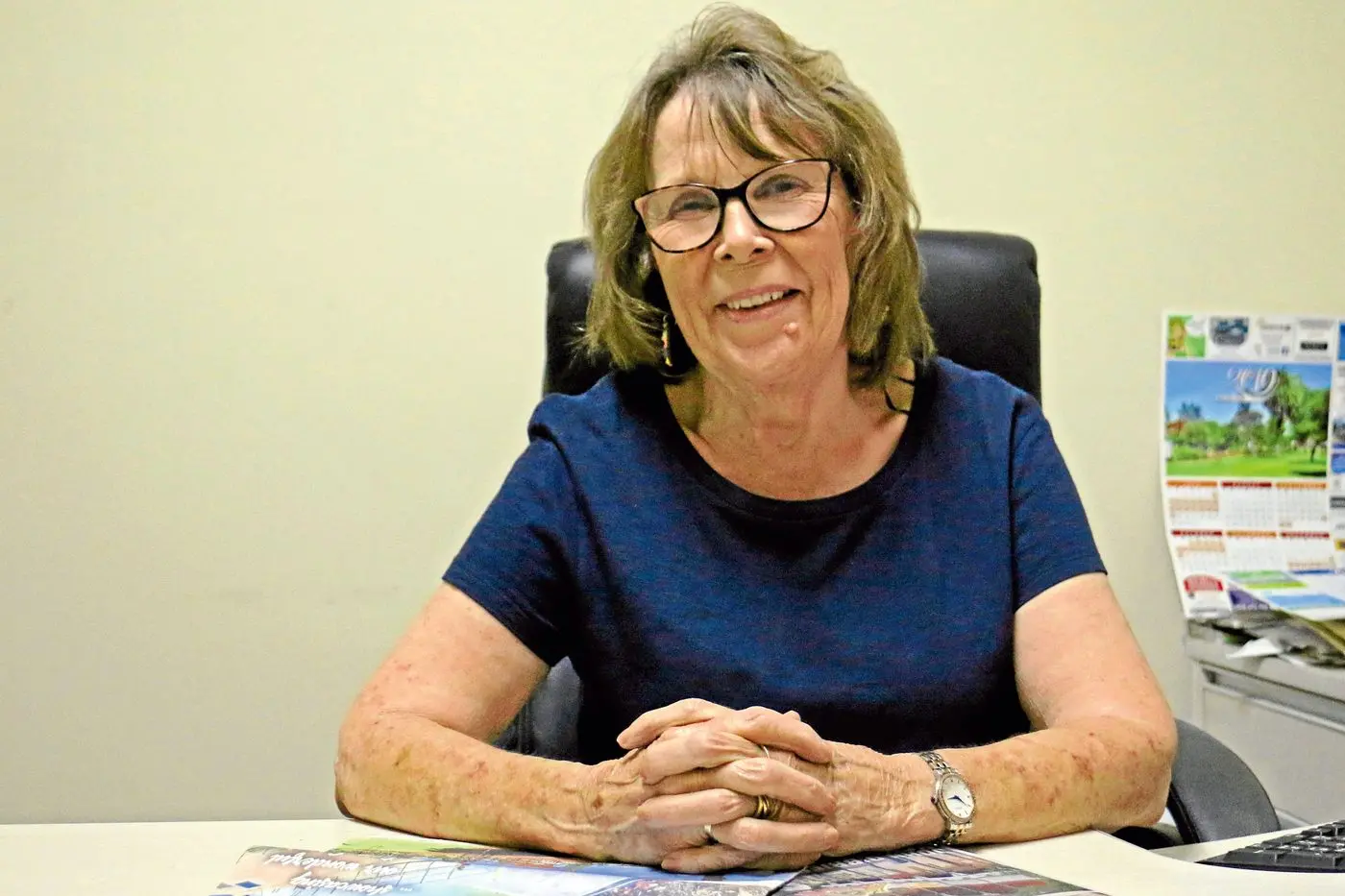PHOTO
Few journalists can boast five decades in industry and even fewer in the same town but Liz Lawrence has been the beating heart of Narrandera’s iconic masthead for 55 years.
Liz attributes this longevity in the industry to a love of the written word and a passion for country newspapers and the vital role they play in rural towns.
Born in Narrandera, she is managing editor of The Narrandera Argus, which celebrated its 140th birthday in 2020.
Liz started her career working on the social pages – a female cadet journalist who some wrongly believed couldn’t be trusted or considered skilled enough to cover the “meaty” issues involving law enforcement, local government and farming issues.
However, she was determined to succeed at a career she pursued since high school years, gaining the trust of local farming identities while reporting on agricultural issues.
Changes beyond their control have had a major impact on Narrandera and its newspaper, including declining rural population, loss of employment opportunities and young people heading to larger centres for lifestyle and careers.
These came with declining advertising and readership for the Argus, like many other rural and regional newspapers. But Liz hopes that the town’s newspaper can be part of a revival.
The Narrandera Argus is now a weekly newspaper instead of a bi-weekly but has adapted to the modern world including changes in technology such as introducing its website and Facebook page, relevant rural pages and rebranding the masthead. The newspaper is now a regional masthead covering issues in the neighbouring shires of Coolamon, Lockhart, Murrumbidgee and Leeton.
Liz has seen massive changes in the newspaper over the past half-century, originally bashing out stories on a trusty old Remington typewriter then handing them to the typesetters and compositors to prepare for the old printing press.
While she wasn’t there to see the Argus change from a broadsheet to a tabloid in the 1960s, she was there for all the rapid changes in technology which have come since.
As a journalist she was a major contributor to the June 1981 Narrandera Argus Centenary publication and the August 11 1985 Centenary of Local Government in Narrandera publication, researching and writing a substantial part of the content.
But the special publications she was most proud of were the ones she initiated as managing editor in 2013 (Narrandera Sesquicentenary) and ‘Narrandera Remembers ANZAC 100 Years’ in 2015.
“Every journalist has a favourite and I think the ANZAC edition was one of the best tributes to local soldiers that you would ever see – it was a highlight of my career to give recognition to these wonderful men and women,” she said.
“This is why I love country journalism – it’s the chance to tell the stories past and present of the wonderful people who live in these communities who would otherwise go unrecognised.
“I also love the diversity of country journalism – you can be telling a profound story about people suffering at the hands of higher authorities who would otherwise never get their stories out there and also becoming a trusted part of the community that people want to share their stories with. Mind you there are some stories that can never be shared or the Argus would be out of business and money! But it’s not all serious stuff and there’s been some funny stories to tell that are unique to country newspapers.”
Liz’s advice to young people seeking a career in journalism is to begin their careers with a country newspaper.
“They will get a great grounding and can then decide if there’s a particular area they are keen to specialise in,” she said.
“Working for a rural newspaper can be tough but it can also be very challenging and rewarding as it has been for me.
“I believe country newspapers like the Argus play a vital role in rural towns and are the mouthpieces of their communities – they cover topics that are unique to country living and give country people a chance to have a say in their community.
“Don’t count us out yet – if we remain relevant and true to our cause of reporting local issues we will survive – we just need the support of our local communities and that includes reading the paper because that makes us attractive to advertisers.”





